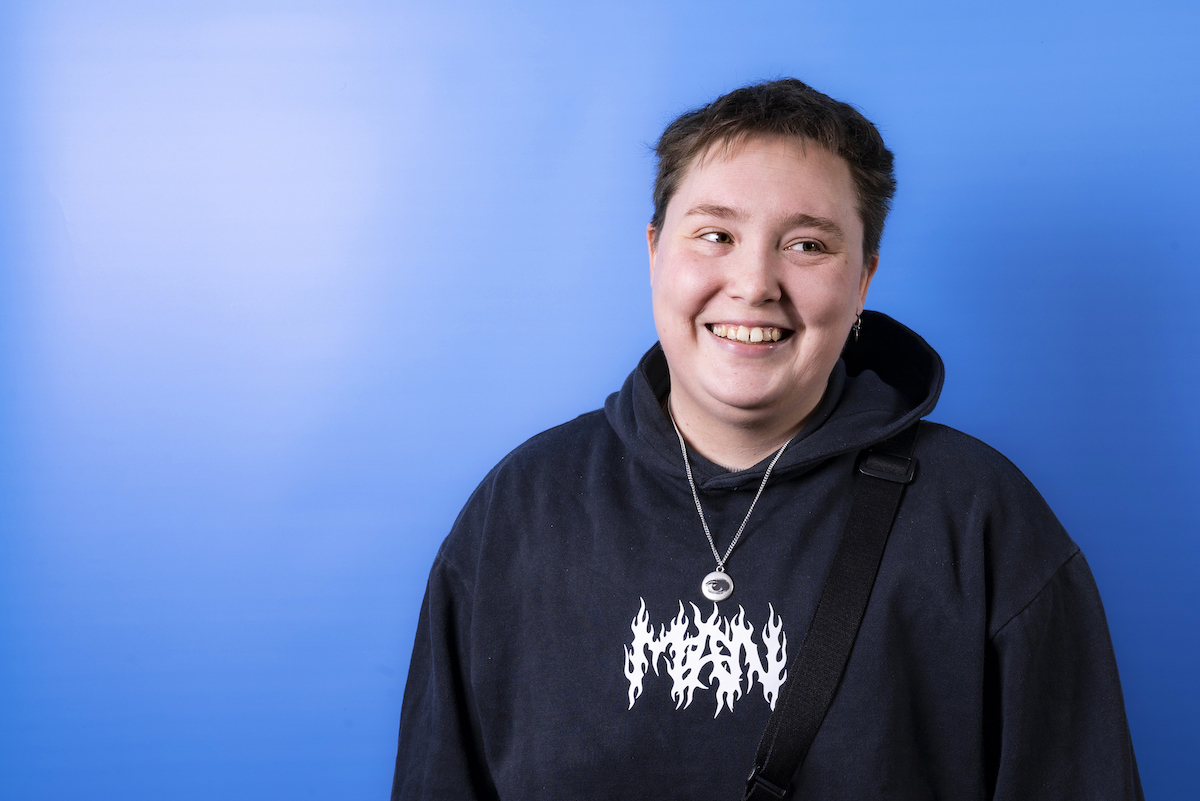When Hex Coles woke up and discovered that their skin had turned yellow all over, they knew instantly something was very wrong.
Hex, now 26, was a university student on the cusp of adulthood – but all of a sudden, they were spending much of their time in hospital, where doctors desperately tried to find out what was wrong with them.
They were originally diagnosed with liver failure, but additional tests revealed that they had aplastic anaemia. It’s a rare, serious health condition that occurs when the body stops producing enough new blood cells to survive.
The treatment for aplastic anaemia is long and arduous. Hex had to have blood transfusions three times a week for a year. They also underwent chemotherapy, a treatment most commonly used to fight cancer, and they had a stem cell transplant.
Thanks to ongoing treatment, Hex is able to live a full, happy life – but getting back to the everyday realities of young adulthood hasn’t always been easy.
“It’s been a bit of a rollercoaster,” Hex tells PinkNews. “When I had my stem cell transplant we decided as a family and for myself that moving to Manchester where my hospital is was the best [thing], so I started living by myself soon after my stem cell transplant.
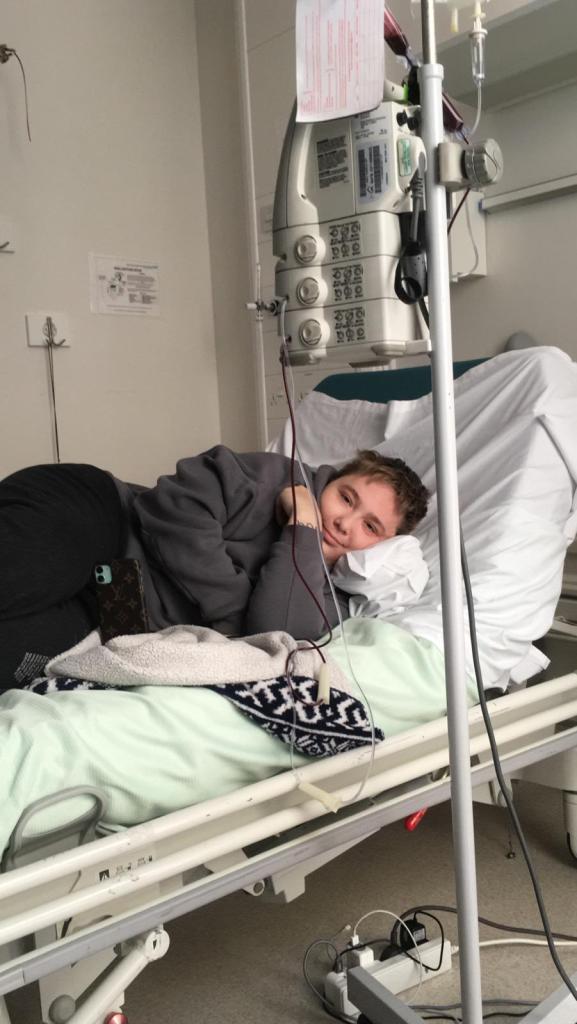
“I guess at that point I thought, wow I’m really independent now. I can do what I want to do. So I thought, why not try dating again?”
Drinking was ‘out of the question’
Hex created a profile on a dating app and they jumped straight in – but they didn’t realise then just how hard the process would be. They quickly came to the painful realisation that they were not the same person they were before treatment. It soon became clear that drinking was “out of the question”, and there were no wild nights out to be had as they needed to get home early to take their medication.
Hex decided not to tell people they met on dating apps right away about their condition. They didn’t want to be defined by their illness – but discovering they couldn’t “keep up” with other people their age left them feeling lonely.
“Soon after I started [dating] I took a break, regrouped and thought, what is it I want out of dating? Do I want a long-term relationship or do I want some company? Because if I want some company it’s not worth all this trying to keep up with people.”
After a brief hiatus, Hex returned to the dating apps with a newfound acceptance that they were no longer the person they were before treatment. They also decided that they wouldn’t tell people immediately about their condition, but that they would do so within the first day or so of speaking to someone new.
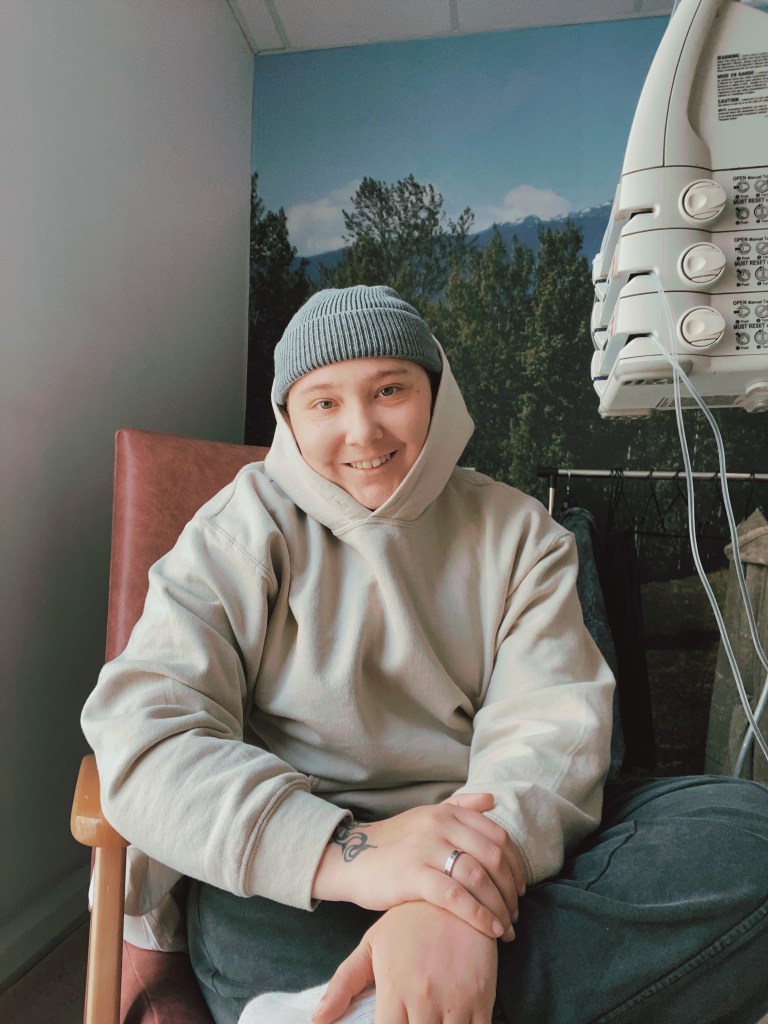
While most people were kind and understanding, some “took a step back” once they found out what Hex had been through. A small number of people blocked them once they opened up about their journey with aplastic anaemia.
“I knew that that wasn’t a reflection of me – that was a reflection of how they were in their lives,” Hex says.
Eventually, Hex met their current partner on a dating app. It was New Year’s Eve and they were on the brink of deleting the apps altogether when the pair started messaging.
“She’s the kind of person that when I don’t feel like I can run as an adult just yet, she’s just there to walk with me. She’s just been the best support and she’s made me feel like myself again.
“This person that I thought that I was when I first started online dating, I kind of feel like I’ve regained a bit of that. And she sees past all my illnesses and all the things that come with that.”
‘It’s really nobody else’s business’
Jamie Dods, 27, has also had to navigate dating post treatment after he was diagnosed with Hodgkins Lymphoma – a type of cancer that affects the lymphatic system – while travelling around Australia in 2019.
When Jamie first received his diagnosis, he had never even heard of Hodgkins Lymphoma. After returning to the UK, he underwent six months of chemotherapy. Six months later, on 30 May 2020, doctors told him that he was officially in remission.
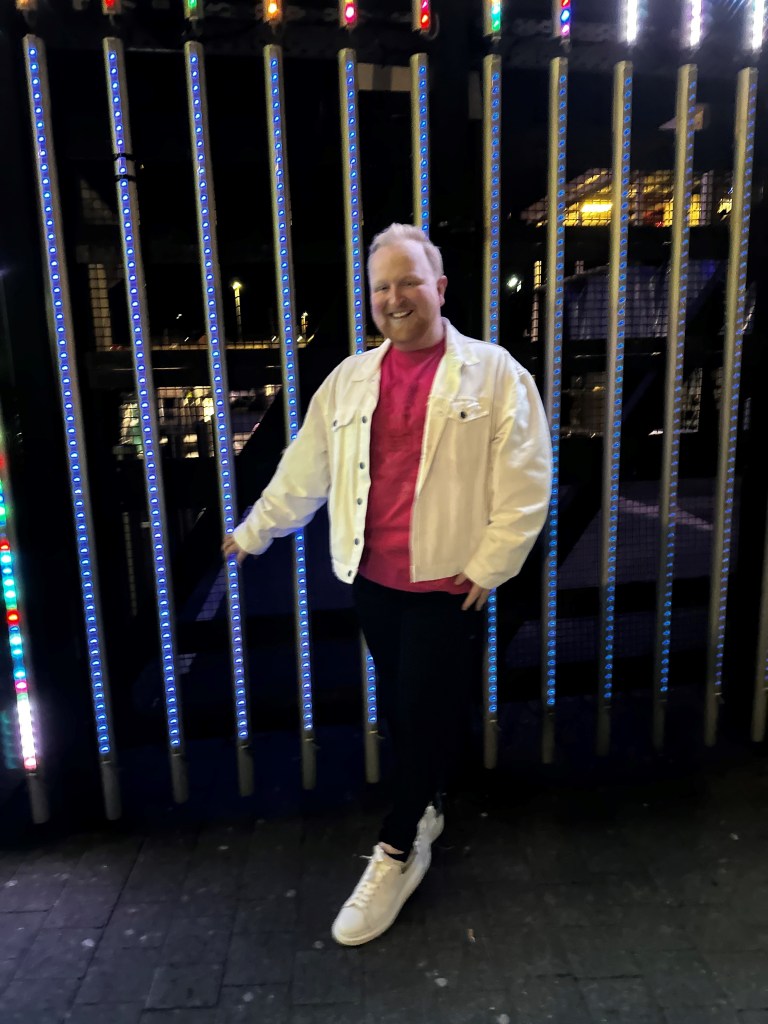
Jamie, who has just graduated from university, says he’s “really careful” with who he shares his cancer story with.
“It’s really nobody else’s business until I decide that it is something I want to share,” Jamie tells PinkNews.
“When I first decided I was ready to set up a dating profile and put myself back out there, I didn’t put pictures of me with no hair or me in a hospital. I just put myself forward as Jamie, and then if the conversation flowed and I met somebody and decided that I trusted them, that’s the point that I would say, ‘Last year I actually went through chemotherapy, so I can’t run up a hill with you on a date for example because I’m just not well enough yet.”
Those Jamie has told about his cancer journey have been largely understanding and empathetic – although he has had some bad reactions.
“People have said really nice things like ‘Wow you’re really brave. Wow, good for you, wow I couldn’t do that, you’re such an inspiration.’ And then there’s been a couple of people that have just straight up said, ‘I’m really sorry, I can’t deal with that.’
“They’ve not necessarily explained why – maybe they’ve been triggered themselves or they’re not equipped to deal with it, I don’t know. But I would say about 95 per cent of people have been extremely nice and just said, it’s behind you and it’s not who you are. I’ve been lucky.”
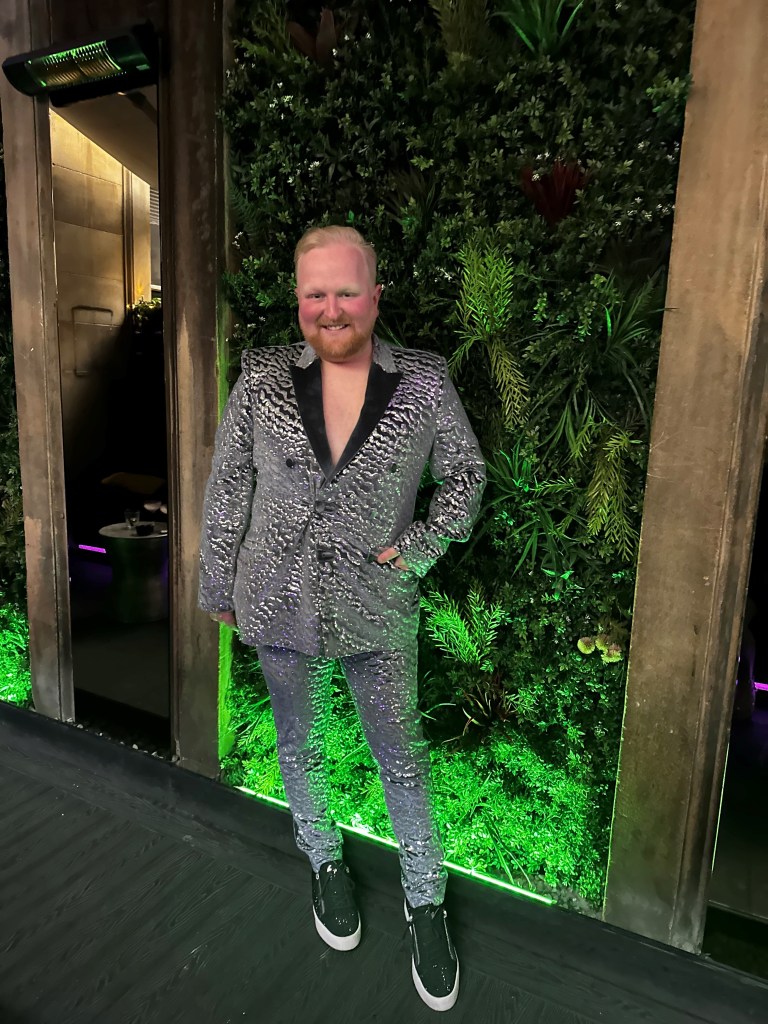
He also admits that it can get frustrating when people tell him he’s an inspiration or that he’s brave – although he has recently come to see that what he went through took courage.
“I guess I was brave because I was scared of hospitals, I was scared of needles, so I had to put on a brave face and just get through it. So there’s maybe a bit of validation there too that, yeah, you know what, I was brave,” he says.
Hannah Jackson is a Teenage Cancer Trust youth support co-ordinator based at The Beatson West of Scotland Cancer Centre in Glasgow. They supported Jamie after his treatment.
“Some young people can find life daunting after treatment. Both the emotional impact of cancer and body changes due to side effects of treatment can add an extra layer of anxiety when it comes to entering the dating world,” Jackson says.
“Youth support coordinators are there to support young people from diagnosis, through treatment and beyond. Though the youth support coordinator role is non-clinical, we are here to talk through any concerns that a young person may have, cancer related or otherwise.
“We are here to remind young people that they aren’t defined by their cancer diagnosis so we can speak to young people about all aspects of their life, for example work, hobbies, family and of course relationships and dating. We can help young people to set goals for what they want to achieve in their life after treatment, both professionally and personally.”
They add: “A huge priority for us is helping young people to build their confidence in navigating life post treatment.”
